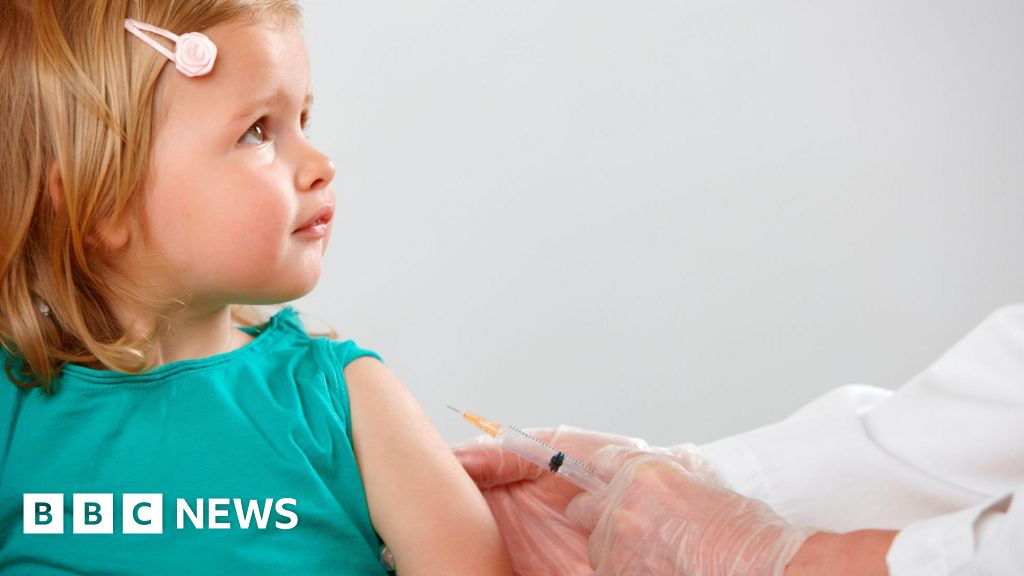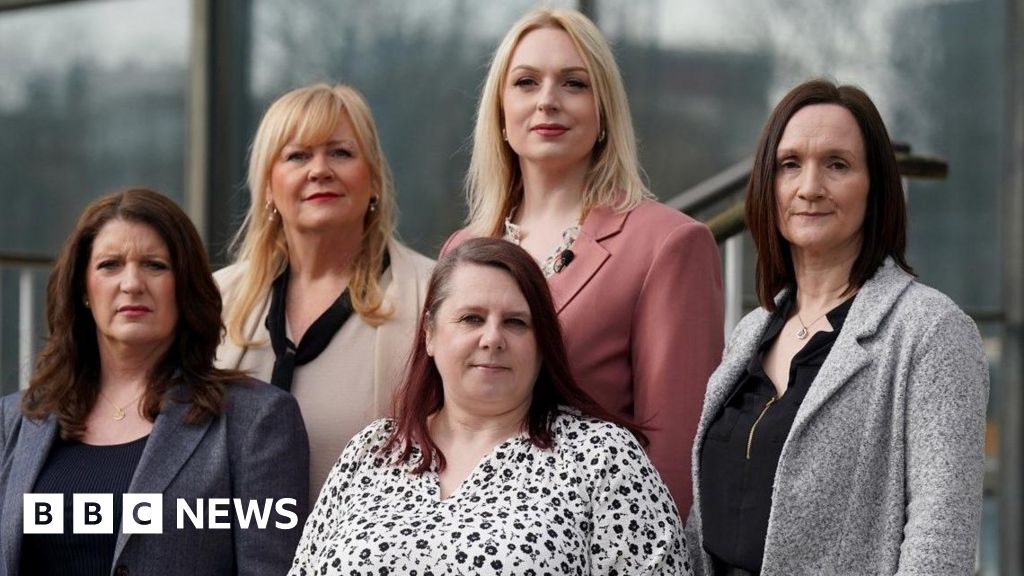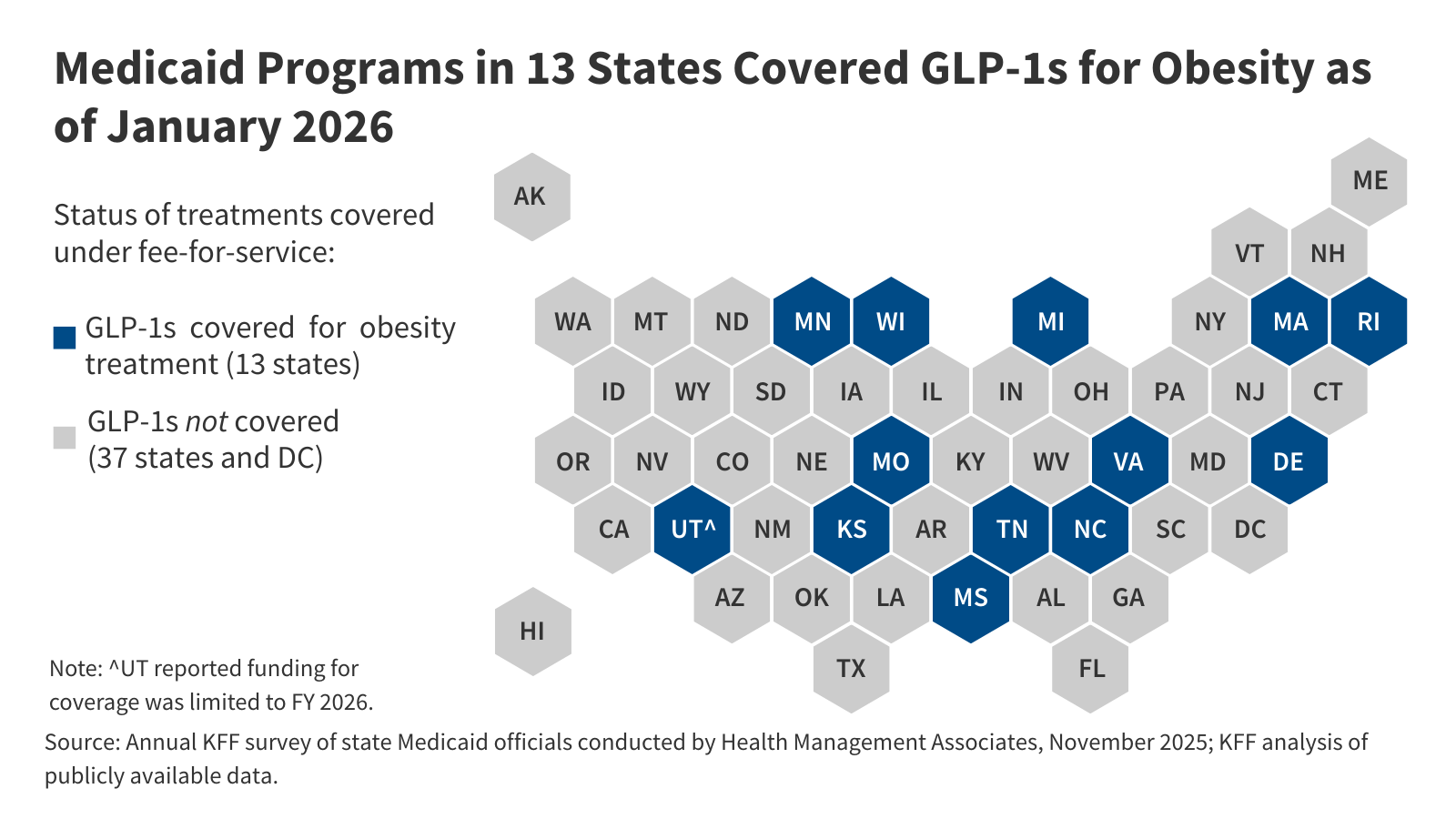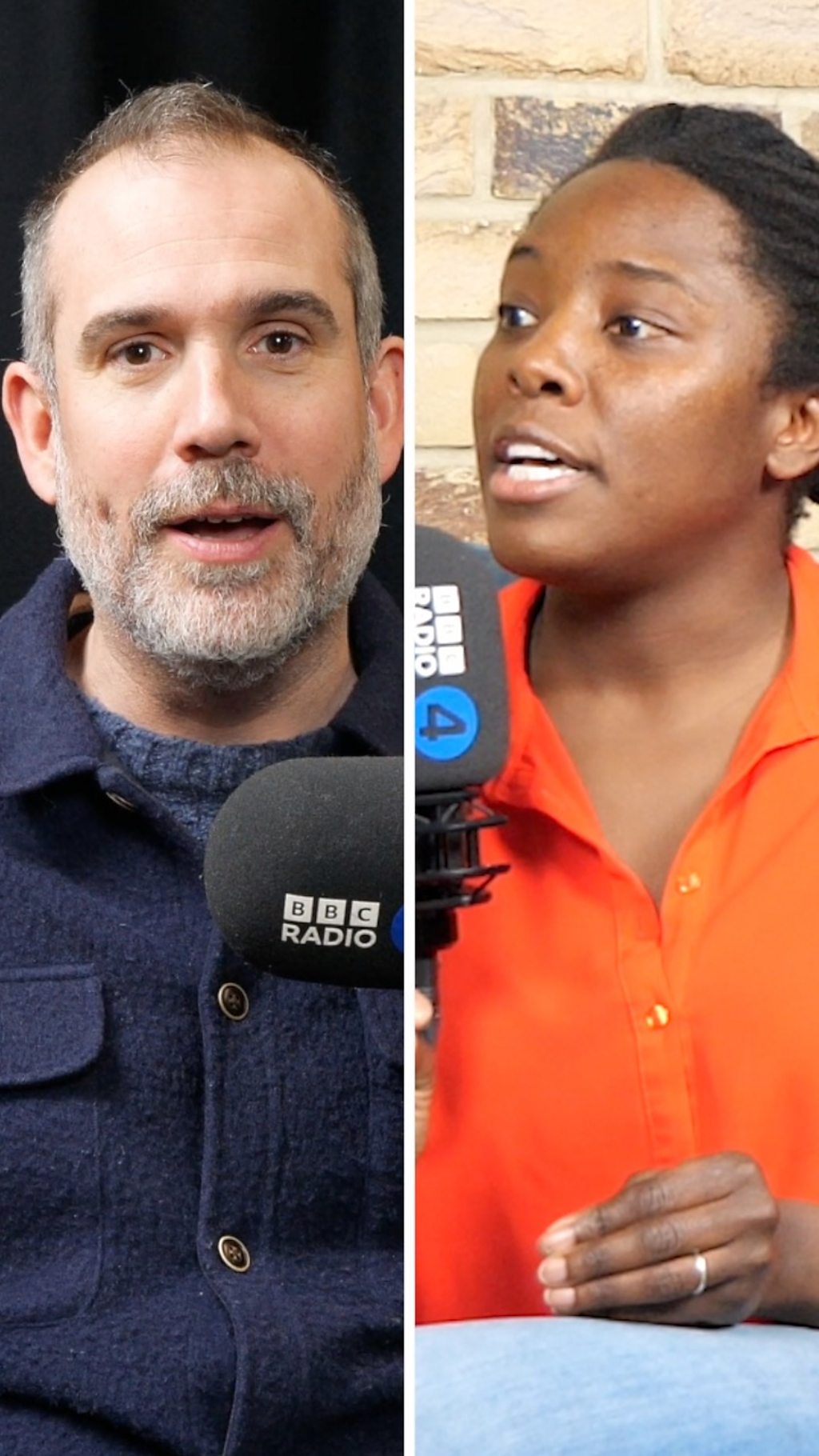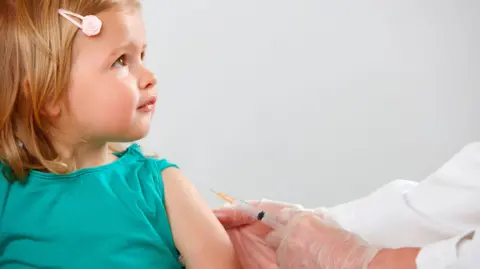 Getty Images
Getty ImagesParents are being prevented from vaccinating their children because of obstacles such as difficulty booking appointments and a lack of reminders on what jabs are needed and when, a report suggests.
Child health experts say “practical or logistical reasons” are discouraging families more often than fears over the vaccines.
Vaccine uptake in the UK has fallen over the last decade, leading to outbreaks of measles and whooping cough.
UK health officials say they are committed to working with the NHS to improve vaccine uptake among children.
‘Easier access’
Since 2022, no childhood vaccine in the UK has met the World Health Organisation target of 95% of children vaccinated, which ensures protection of vulnerable people. As a result, measles and other preventable diseases have made a comeback.
A commission of experts from the Royal College of Paediatrics and Child Health (RCPCH) spent a year looking at why.
Dr Helen Stewart, officer for health improvement at RCPCH, said the steady decline in vaccination rates in a wealthy country like the UK was “extremely concerning”.
But she said vaccine hesitancy, when parents waver over getting their children vaccinated, “is only part of a very complex picture”.
“The reality is that there are many who simply need better support and easier access to appointments,” Dr Stewart said.
Although confidence in vaccines is still relatively high, the report found barriers to accessing jabs are why many families don’t protect their children.
Some of the most common barriers include:
- difficulties getting through to book appointments at GP surgeries
- difficulties getting time off work for appointments
- limited transport options or no parking at GP surgeries
- not seeing the same GP each time so lack of trust
- not being able to speak to a GP or nurse to ask about the vaccines
- lack of reminders for jabs being sent out from GP
- not enough clear information about what jabs their child needs and when
“One of the findings of this new report is that parents have no easy way to check their child’s vaccination status,” says children’s emergency medicine specialist, Dr Stewart.
“When I ask if the child is up to date with their vaccinations, the most common response is ‘I think so’.”
Poorer families, some ethnic minority groups and migrant communities are much less likely to be vaccinated, and these inequalities have become more obvious since the pandemic, the report says.
It also notes an absence of health visitors often means parents have no one they feel comfortable discussing vaccines openly with.
Digital red book
The report recommends using NHS apps to improve the experience of booking jabs, investing and expanding vaccination services, and funding health visitors to deliver some of them.
It also calls on the development of the ‘digital red book’ to be finalised so parents can keep track of their children’s vaccinations.
The NHS website lists the full schedule of vaccinations for children, from babies, up to the age of 15.
Dr Julie Yates, deputy director for immunisation programmes at UK Health Security Agency, said plans were in place to improve childhood vaccine uptake by ensuring more flexible appointment booking systems, making vaccines more widely available across different locations, and making access easier in all communities.
“Despite the challenges, it is also important to note that parents have high confidence in vaccinations with almost 90% agreeing vaccines are effective,” Dr Yates said.
Alison Morton, chief executive of the Institute for Health Visitors, said the report presented “a compelling case” to ensure babies and children are protected against serious diseases which can cause so much unnecessary harm.
Helen Bedford, professor of children’s health at University College London, said improvements needed investment in staff and infrastructure.
“Our children have the right to be protected from preventable diseases which can cause illness, disability or even death,” she said, adding that a fall in children getting their vaccines had resulted in the deaths of 11 young babies from whooping cough last year.
Falling vaccinations among children isn’t just an issue in the UK, in 2023 there were nearly 16 million children who had not had any vaccinations, most of them in south Asia and sub-Saharan Africa.



